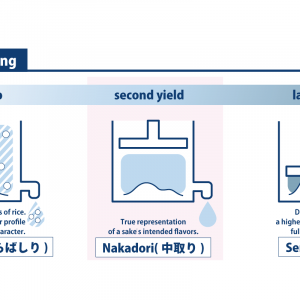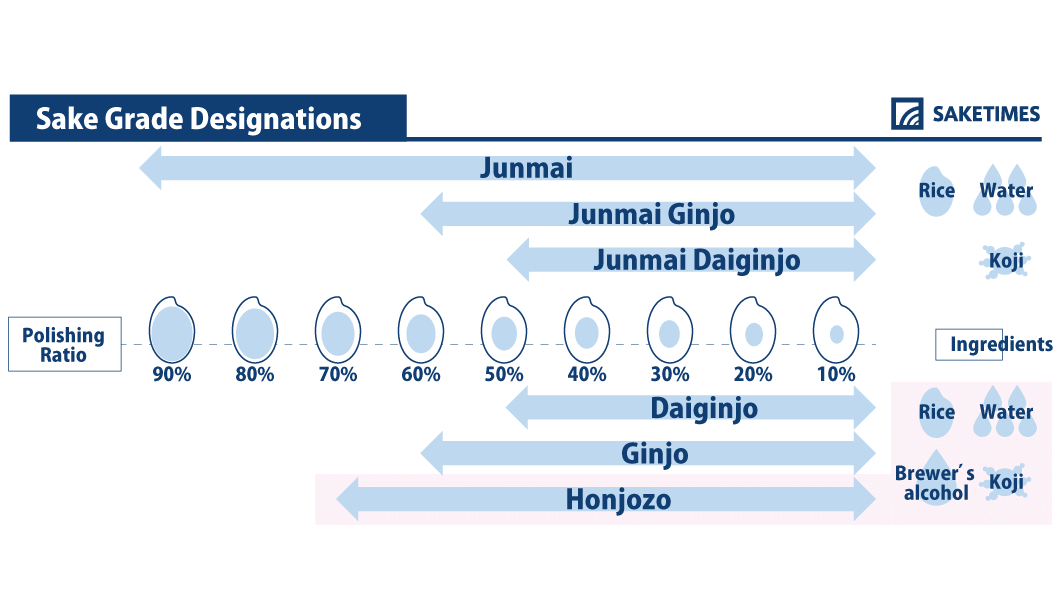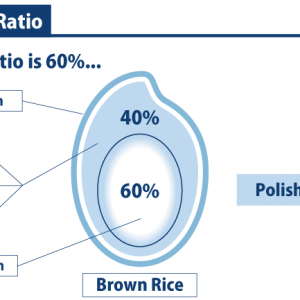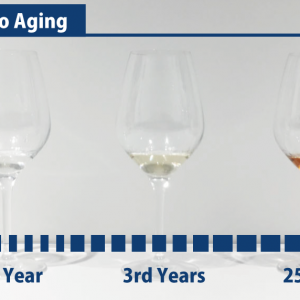
Honjozo (noun)
[Hon-Jo-Zoh]
Japanese characters: 本醸造 (本: real; 醸造: brew)
What is Honjozo Sake?
Honjozo is a type of tokuteimeishoushu – or “special designation” sake – that’s fortified with a small amount of distilled alcohol, added into the moromi at the end of the fermentation process. Generally speaking, honjozo sake tend to be lighter and drier than their junmai counterparts.
Brewer’s Alcohol
In the case of honjozo, the distilled alcohol – often referred to as brewer’s alcohol – is added as a calculated production technique to achieve the desired characteristics in the drink, and not as a shortcut for increasing yield. In fact, there are legal requirements to ensure honjozo’s quality: seimaibuai must tally at 70% or less (remember, lower percentage means more polishing and generally a more refined flavor; more here), while the weight of the added alcohol cannot exceed 10% of the weight of the sake rice used.
Brewer’s alcohol is a distilled alcohol usually made from sugar cane, and is essentially the same spirit as shochu. This should dismantle the common misconception that the added alcohol is somehow synthetically produced, and therefore the cause of unintended hangovers.
The spirit is additionally cut with water to lower its alcohol content to about 30% prior to introduction into the moromi mash. When compared to a junmai sake, the added water helps make honjozo notably drier, while the alcohol lightens the body and enhances aroma.
Perfect with Food
This flavor profile makes honjozo a great Shoku-chu shu, or a sake to have alongside food. It pairs particularly well with sashimi, salads, tofu, and other light dishes, as the honjozo’s lighter features interfere less with the flavors in a given food pairing. Its light flavor also makes it an excellent session sake. Honjozo usually comes at a more reasonable price point than its ginjo cousins to boot, providing one more reason to make it a staple with home dinners.
Learn More>>Seimaibuai:SAKETIMES GLOSSARY
Free Sake Infographics:Feel free to download and use them freely from here to help you learn more about sake!





Comments